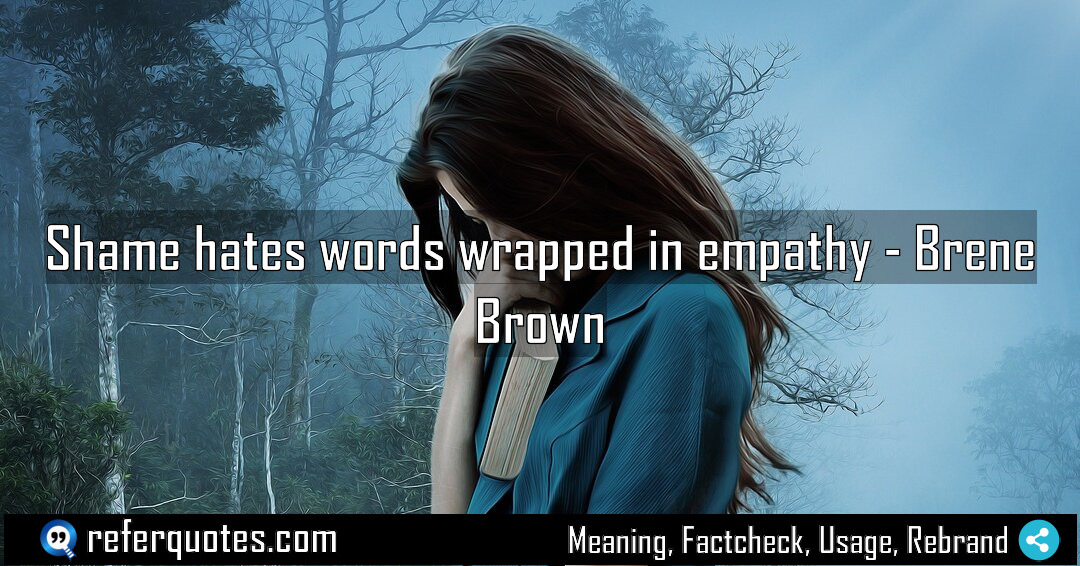Shame hates words wrapped in empathy because it’s a powerful antidote. When you respond to someone’s shame with genuine understanding, you literally disarm its power. It’s a game-changer for anyone dealing with difficult conversations.
Share Image Quote:Table of Contents
Meaning
At its core, this means that shame, which thrives in silence and judgment, simply cannot survive when it’s met with compassionate, understanding language.
Explanation
Let me break this down from my own experience. Shame is that gut-wrenching feeling of “I am a bad person.” It’s not guilt about a behavior, it’s a deep-seated belief about your own worth. And what does shame need to grow? Secrecy. Silence. Judgment. It feeds on that isolation. Now, empathy is the exact opposite. It’s connection. It’s saying, “I get it, I’ve been there, you’re not alone.” When you wrap your words in that kind of empathy, you’re creating an environment where shame cannot breathe. It’s like kryptonite. The shame has nothing to latch onto, no judgment to fuel it, and it just… deflates. It’s a profound shift from “I am bad” to “I am a human who had a human experience.”
Quote Summary
| Context | Attributes |
|---|---|
| Original Language | English (3670) |
| Category | Wisdom (385) |
| Topics | empathy (143), shame (13) |
| Literary Style | metaphoric (105) |
| Emotion / Mood | hopeful (357) |
| Overall Quote Score | 76 (131) |
Origin & Factcheck
This quote comes straight from Brené Brown’s 2010 book, The Gifts of Imperfection. It’s a cornerstone of her research on vulnerability and wholehearted living, originating from her work in the United States. You won’t find it correctly attributed to anyone else—this is pure Brené.
Attribution Summary
| Context | Attributes |
|---|---|
| Author | Brene Brown (257) |
| Source Type | Book (4032) |
| Source/Book Name | The Gifts of Imperfection (46) |
| Origin Timeperiod | 21st Century (1891) |
| Original Language | English (3670) |
| Authenticity | Verified (4032) |
Author Bio
Dr Brene Brown is the author of books such as Daring Greatly and The Power of Vulnerability. The TED talk and Netflix production based on her research reached out to millions of audience. She researches effects of courage and vulnerability in shaping people's work and relationships. She leads the Brené Brown Education and Research Group and provides evidence-based insights into practical tools to help people train themselves
Official Website |Facebook | X | Instagram | YouTube |
Where is this quotation located?
| Quotation | Shame hates words wrapped in empathy |
| Book Details | Publication Year/Date: 2010; ISBN/Unique Identifier: 9781592858491; Last edition. Number of pages. |
| Where is it? | Approximate page from 2010 Hazelden edition |
